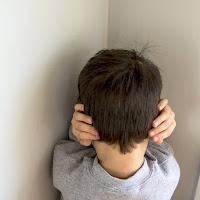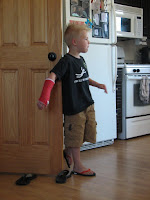How to Prevent Discipline-Related Meltdowns: Tips for Parents of Kids on the Spectrum

“Are there some ways to prevent some of the discipline-related problems encountered with children who have high functioning autism, specifically meltdowns associated with receiving a consequence for misbehavior? I say ‘prevent’ because it seems that once my son knows he is going to be punished, it quickly escalates into meltdown, which by then is much too late to intervene. Is there a way for us to ‘predict’ and thus prevent a potential meltdown?” Most parents of kids with High-Functioning Autism and Asperger's wait until a problem occurs, and then try to deal with it by issuing a consequence. Consequences can be positive (gaining something desirable) or negative (losing something desirable). Sometimes, consequences are discussed prior to an event, but usually in terms of a motivator: "If you do this, you will gain (or lose) that." Too often, parents use consequences in the middle of a behavior problem (e.g., "If you don't stop that, you’re not going to p


